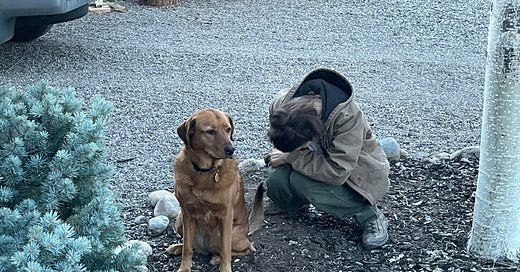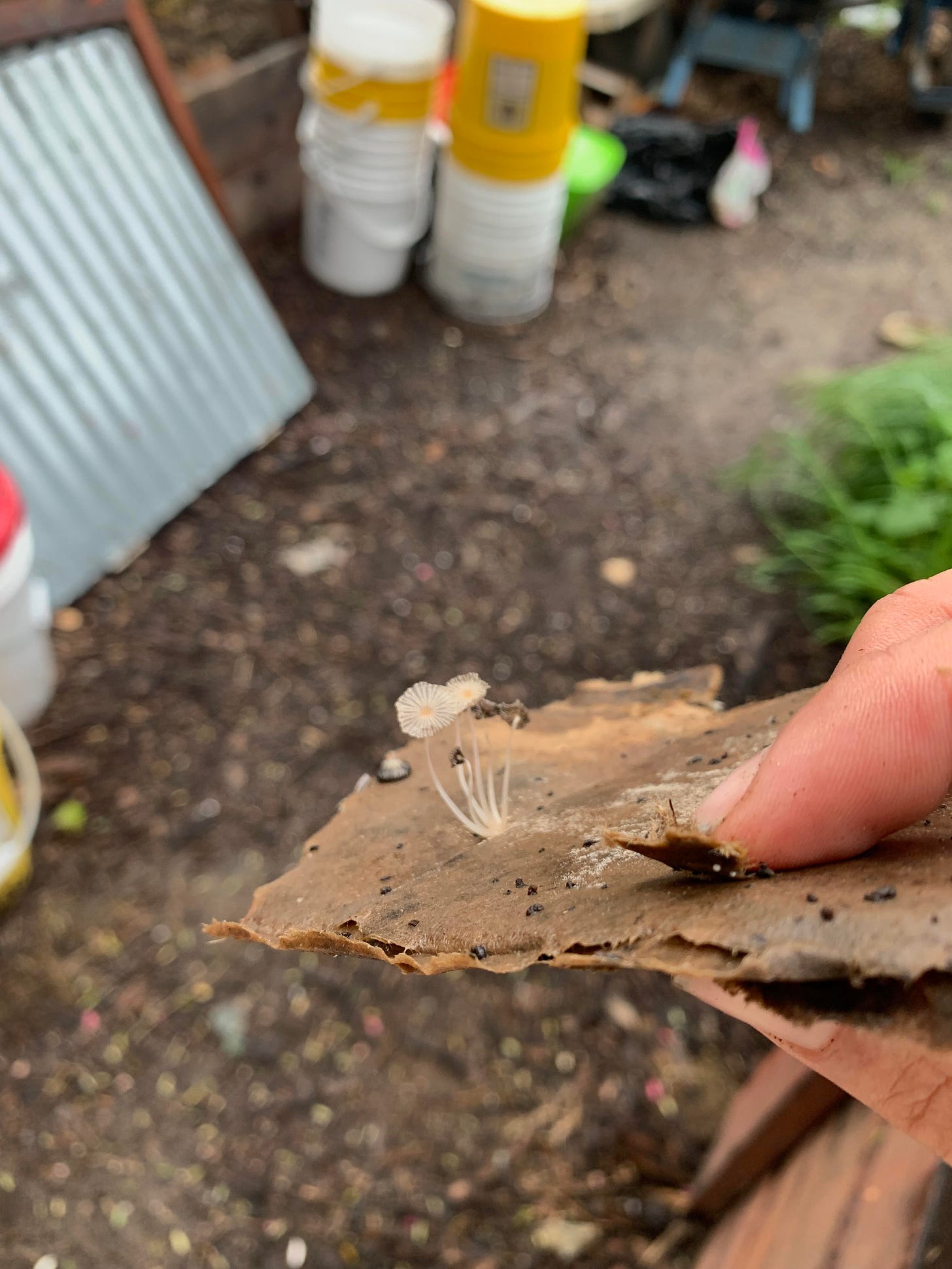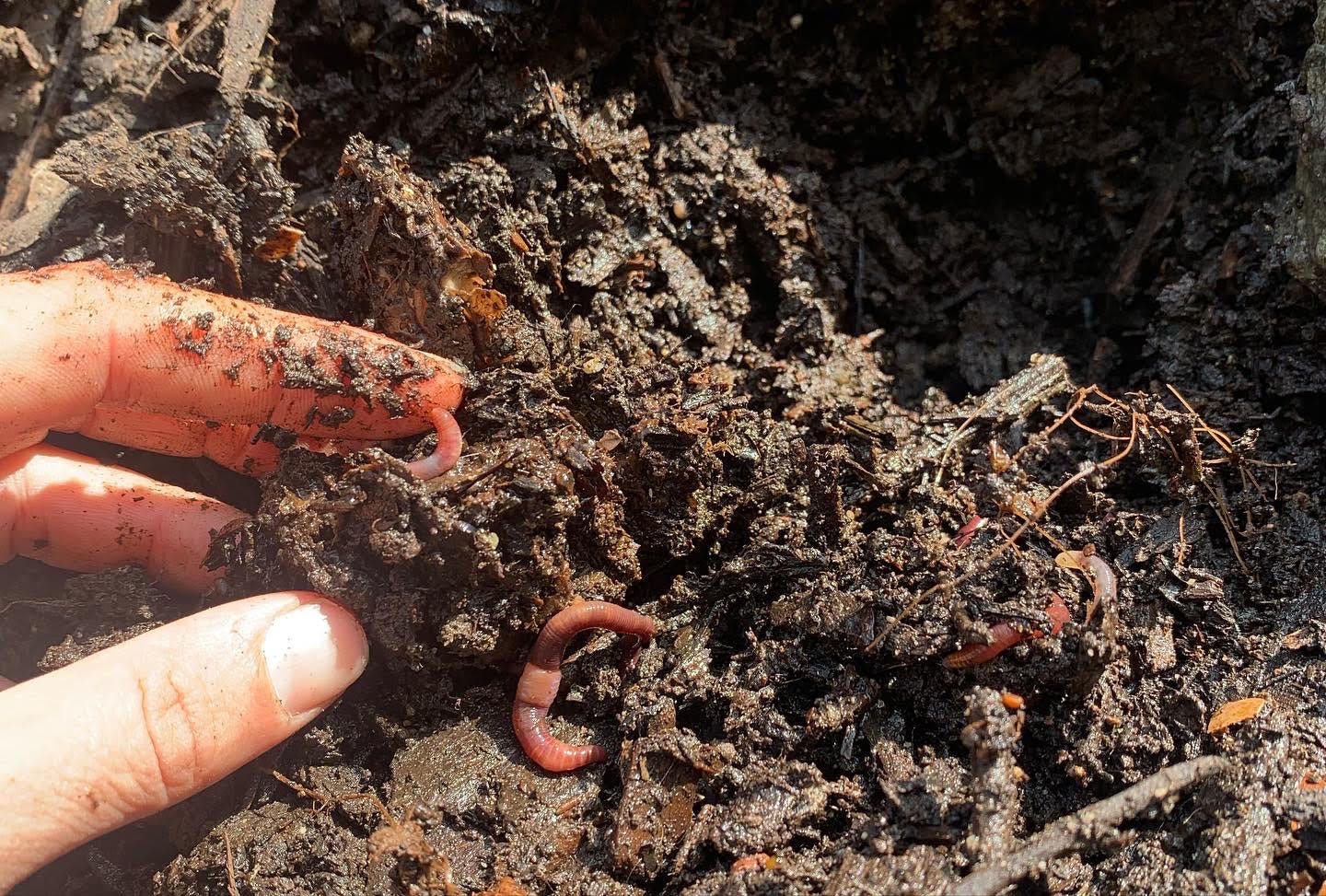It's International Compost Awareness Week
Let's talk about what you eat and why it's better with some compost.

Yes, it’s International Compost Awareness Week (ICAW). The goal of ICAW is to “work together to raise public awareness on why we all should be composting our organics recycling and using compost.” Coincidentally, this is also the goal of this publication. So, happy ICAW!
This year, ICAW is orientating its educational initiatives around the slogan “For Healthier Soil, Healthier Foods…Compost!”. I believe what they mean to say is that we have a problem. The problem is that the generally degraded condition of our soils is contributing to what scientists are referring to as a “nutrient collapse” in our food. Fortunately, though, we also have a solution: compost. Regenerative agricultural practices, which prominently include composting, can help restore vital nutrients to our soil and, thus, our dinner plates.
Let’s dig in.
On the whole, the food that you get from your local grocery store today is less nutrient-dense than the food consumed by prior generations. Specifically, there have been declines in six key nutrients: protein, calcium, phosphorus, iron, riboflavin, and vitamin C. There are a few reasons for this, but one of the biggest is how conventional farming methods have destroyed the health of arable soils across wide swathes of the planet. Less healthy soils mean less available nutrients for plants, and those nutrients are now being spread across larger and larger crop yields. If that sounds scary to you, it’s because it… is a little bit scary. According to a summary from National Geographic:
These raw fruits and veggies showed declines in protein, calcium, and phosphorus, which are essential for building and maintaining strong bones and teeth and for proper nerve function. There were also dips in iron, vital for carrying oxygen throughout the body, and in riboflavin, which is crucial for metabolism of fats and drugs. Levels of vitamin C—important for the growth and repair of various tissues in the body and for immune function—also fell.
The level of decline varied depending on the specific nutrients and the type of fruit or vegetable, but it generally ranged from 6 percent for protein to 38 percent for riboflavin. In particular, calcium dropped most dramatically in broccoli, kale, and mustard greens, while the iron content took a substantial hit in chard, cucumbers, and turnip greens. Asparagus, collard greens, mustard greens, and turnip greens lost considerable amounts of vitamin C.
This isn’t an outright crisis, of course, but it’s certainly not great. Course correcting will take widely adopted and large-scale adjustments to how we farm, but one of the most important first steps we can take is to reintroduce organic matter (e.g. “compost”) to the process of maintaining crop land. Not only will will this bolster the soils natural ecology and support its optimal function, allowing for the growth of more nutrient-rich plants, it has other benefits like dramatically improving water retention and carbon-holding capacity.
Doesn’t it seem wild that the stuff we usually just throw away has so much vitality and potential. (Not a question.) So, this International Compost Awareness Week, I invite you to compost. Compost not just at home or at your local garden, but at scale— politically, in community with others, spiritually, and more. The health of our soil has never been so important. Support legislation that calls for composting. Support growers who use regenerative agricultural practices. Talk about compost with your friends and family. Every little thing counts.
Other things going on:
I was recently featured in Push Picks, a newsletter run by the artist and curator Molly Surno, where I briefly touched on my (admittedly eccentric) view of food scraps:
I think food scraps are an oft-underappreciated and underutilized resource, and if there's one thing I strive to do in my work, it's to help people see them a bit differently - as beautiful and full of potential, a vital resource that we shouldn't waste. If we truly had a sense of what our food scraps could do (be turned into soil, be used to regenerate a depleted earth, and to grow and provide food), we would never, ever put them in trash. Sacrilege! We would cherish them as gods. I'm barely exaggerating.
If you’re in the LA area, I’ll be giving away free compost this Friday at the Echo Park Farmer’s Market, stop by, say hi, and grab some. (My stuff gets good reviews! I promise.)
On a final note, last week I wrote to you with a plea to help save Compton Community Garden. As of today, the garden has managed to raise enough money—largely from small donors, and in some small part to the many of you who donated—to launch a competitive bid to keep their land. They are still raising funds until the very last second, so if you’ve been thinking about giving and haven’t yet, you still can. This is huge.
Thank you so much for your support.
Love,
Cass





Is that really a picture of her ... yup, sure enough, it is. Bold move! I love it. I’m sending you some pics of our major commitment to compost: we doubled the size of our garden this year and had to bring in 10 yards produced by the local farmer out in the valley. Wonderful stuff.